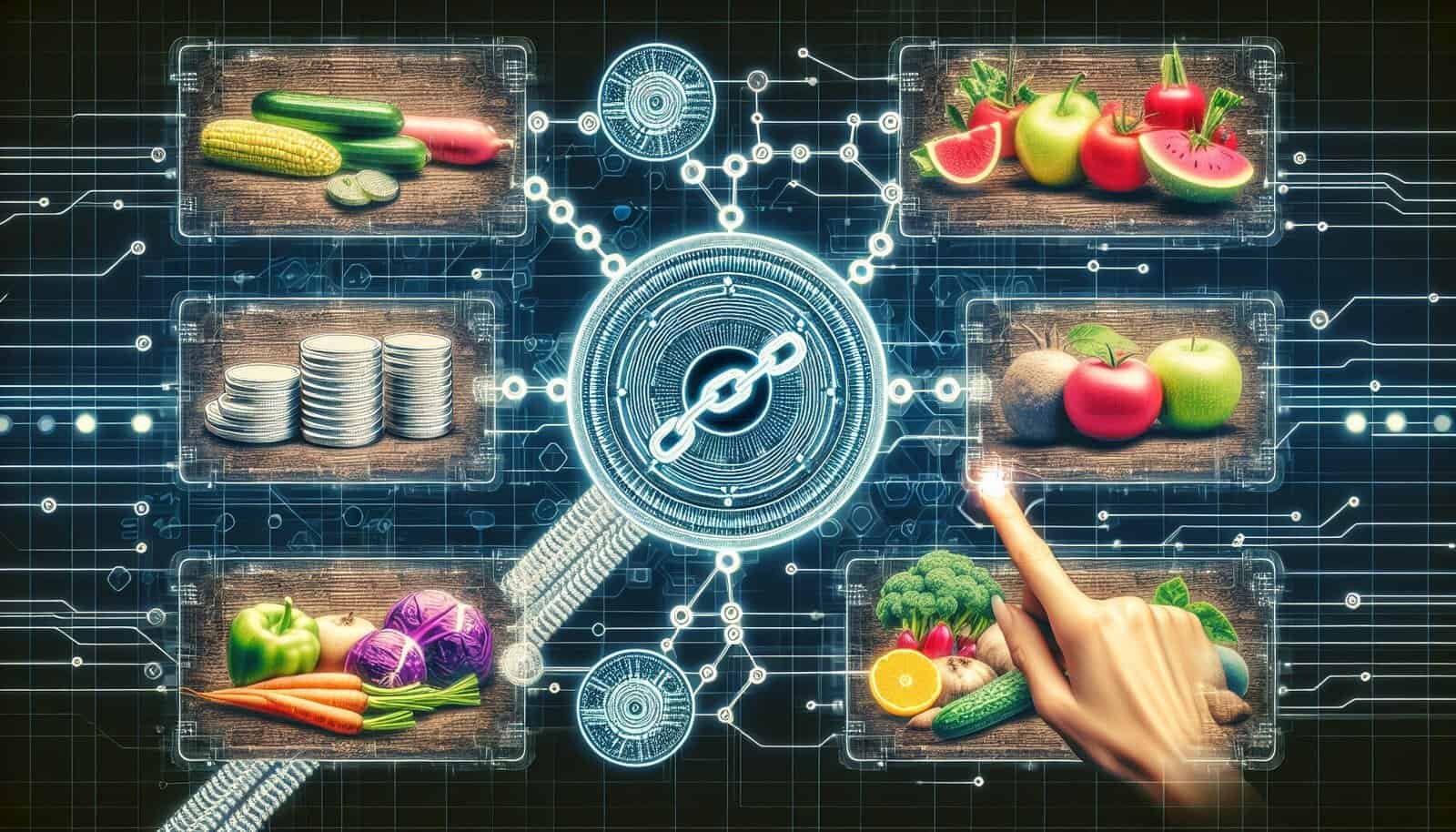Have you ever wondered how blockchain technology can transform the way we think about food supply chains? With challenges like transparency, efficiency, and sustainability increasingly important, the Food Supply Chain Token (FST) emerges as a notable solution to revolutionize the food industry. Let’s embark on an enlightening journey to understand how FST can reshape the landscape of global food distribution.
Understanding the Food Supply Chain
Before we dive into the specifics of the Food Supply Chain Token, it’s essential to grasp the concept of a food supply chain itself. Essentially, a food supply chain is a complex network that involves the production, processing, distribution, and consumption of food. It involves multiple stakeholders, from farmers and manufacturers to retailers and consumers.
The Traditional Food Supply Chain
In traditional settings, the food supply chain is often plagued by issues such as inefficiency, lack of transparency, and food waste. These issues stem from the reliance on outdated technologies and practices. The traditional model also complicates the traceability of food products, making it challenging to verify their origin and quality.
Challenges within the Food Supply Chain
- Lack of Transparency: Consumers often desire information about the source of their food, but current systems make it difficult to track products back to their origin.
- Inefficiency: Multiple intermediaries can lead to delays and increased costs, with impacts felt by all parties involved.
- Sustainability Concerns: The food industry faces pressure to adopt sustainable practices, but there are significant hurdles to implementing large-scale changes efficiently.
Enter the Food Supply Chain Token (FST)
The introduction of blockchain technology into the food supply chain offers a promising resolution to these ongoing issues. The Food Supply Chain Token (FST) capitalizes on blockchain’s capabilities to provide a more transparent, secure, and efficient food distribution network. But what exactly is FST, and how does it work?
What is the Food Supply Chain Token?
The Food Supply Chain Token is a digital asset developed to improve and streamline food supply chain operations. By leveraging blockchain technology, FST aims to address existing challenges and promote a more transparent and traceable food distribution ecosystem.
Key Features of FST
- Blockchain-Based Platform: FST is hosted on a decentralized blockchain platform, ensuring that data entries are immutable, transparent, and easily accessible.
- Smart Contracts: By using smart contracts, FST facilitates automatic and secure transactions, simplifying agreements between parties and reducing the need for intermediaries.
- Traceability: Each FST transaction creates a permanent record, allowing stakeholders to trace food products throughout the supply chain efficiently.

The Impact of FST on Food Supply Chains
The implementation of FST has the potential to fundamentally reshape the food industry, offering numerous benefits to both businesses and consumers. Let’s explore how FST can address existing supply chain challenges.
Enhancing Transparency
One of the primary advantages of utilizing FST in food supply chains is the enhanced transparency it offers. With each transaction recorded on a public ledger, consumers can easily access information about the history of a food product. This transparency also helps build trust between consumers and suppliers, facilitating better brand loyalty.
Improving Efficiency
The automated nature of blockchain, paired with the use of smart contracts, significantly increases efficiency within the food supply chain. By reducing the need for intermediaries and manual record-keeping, FST streamlines operations and decreases the likelihood of errors, ultimately saving time and costs for businesses.
Promoting Sustainability
FST can support sustainable practices by tracking and verifying sources of food products. Consumers and businesses can make informed choices based on reliable data, encouraging the adoption of environmentally friendly and ethical practices across the supply chain.
How FST Works in Practice
To better understand the application of the Food Supply Chain Token, let’s take a look at a typical food product’s journey from farm to table in a blockchain-based supply chain.
Tracking the Product Journey
- Production Stage: Farmers enter data about their crops or livestock onto the blockchain, creating an immutable record of the product’s origin and growing conditions.
- Processing and Manufacturing: The food is processed and manufacturing details are added to the blockchain, preserving information about handling and quality assurance measures.
- Distribution: Each shipment is assigned a unique identifier, tracked through transportation, and updated on the blockchain, ensuring the product’s journey is fully documented.
- Retail: Retailers access the blockchain database to obtain product information, providing consumers with transparent data regarding the food’s path to market.
- Consumption: Consumers can use a simple QR code scan to retrieve comprehensive information about the product’s lifecycle, making informed purchasing decisions.
FST in Action: A Case Study
Imagine an eco-conscious consumer purchasing organic produce at their local grocery store. By scanning a QR code, they access detailed information about the farm’s sustainable procedures, the environmental impacts of production, and the efficiency of the transportation method used. This data assures the consumer that their purchase aligns with their values, increasing satisfaction and trust in the brand.

Challenges and Considerations
Despite its promising potential, the adoption of FST is not without challenges. Understanding these concerns is crucial for evaluating the feasibility of full-scale implementation.
Technological Barriers
The success of FST relies heavily on the development and implementation of sophisticated blockchain technology. Ensuring that stakeholders possess the requisite technological capabilities and infrastructure is a significant hurdle that must be addressed.
Regulatory Considerations
As a relatively new technological frontier, blockchain and cryptocurrencies operate in a complicated regulatory environment. Adopting FST on a larger scale requires clear regulatory frameworks to ensure compliance and protect consumer rights.
Cost Implications
While FST may streamline operations and reduce costs in the long run, its initial implementation can be costly for many businesses. Small businesses, in particular, might face financial challenges when adopting new systems.
The Future of Food Supply Chains with FST
The Food Supply Chain Token presents a transformative opportunity for the global food industry. As technology continues to evolve and consumer demands for transparency and sustainability grow, FST stands poised to democratize food supply chains and drive innovation.
Adoption Across the Industry
Widespread adoption of FST can empower businesses to meet ever-evolving consumer preferences, providing a significant competitive advantage. As more companies embrace blockchain solutions, the industry as a whole will benefit from improved transparency, efficiency, and sustainability.
Empowering Consumers
FST places the power back in the hands of consumers, allowing for more informed choices and fostering a deeper connection with the food they eat. This shift in consumer engagement can encourage further adoption of ethical and sustainable practices in production and distribution.

Conclusion
Blockchain technology, through the Food Supply Chain Token, offers an innovative framework for resolving many of the challenges plaguing traditional food supply chains. From enhancing transparency to improving operational efficiency and promoting sustainability, FST presents a promising pathway to a more equitable and responsible food industry.
As you reflect on how blockchain can revolutionize food supply, consider how FST might impact your daily consumer habits and influence larger industry trends. With the continued advancement of technology and the growing emphasis on ethical food sourcing, the future of food supply chains appears more promising than ever.

